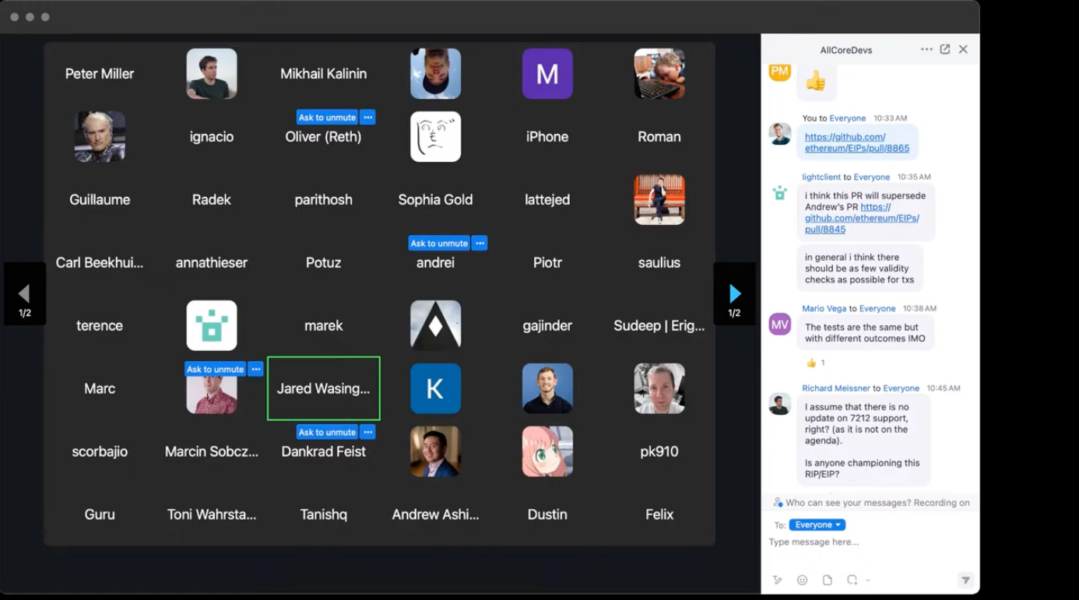Ethereum developers are considering dividing the highly anticipated Pectra upgrade, which will increase the network’s efficiency and scalability, into two parts. The first phase could launch by early 2025.
“There is broad agreement that if we split, the idea is that we want to ship Pectra one quicker, or as quick as possible, early next year should be our target,” an Ethereum developer said during Ethereum’s execution layer meeting on Sept. 12.
Developers eye February deadline
“Feb feels realistic with a split Pectra,” another developer stated.
“Splitting the fork only makes sense if we are talking Q1 delivery,” developer Danno Ferrin added.

EF Researcher Ansgar Dietrichs opined it would be a setback if it was split and wasn’t delivered as quickly as possible. “I think a split where we still only ship the first half in say June would be a failure,” he said during the meeting.
It was suggested that splitting the upgrade into two may be a safer option because smaller forks usually carry less risk.
Ethereum’s Pectra upgrade combines two separate upgrades: the Prague upgrade and the Electra upgrade. The Prague upgrade is focused on changes to the network’s execution layer, with the Electra upgrade impacting the consensus layer.
Galaxy crypto researcher Christine Kim believes the chances of the split are “high due to the complexity of the current Pectra fork and the desire to add still more to the upgrade.”
“The scope of the Pectra upgrade could change drastically if devs decide to split it across two hard forks,” Kim added.
The developers will decide on this at the next Ethereum All Core Developers (ACD) call on Sept. 19.
Industry shows optimism for Pectra upgrade
Kim previously stated on June 7 that the Pectra upgrade is “shaping up to a big upgrade, possibly the largest in Ethereum’s history.”
Ethereum educator Sassal echoed a similar sentiment. “Pectra, the next Ethereum network upgrade, is shaping up to be the biggest in Ethereum’s history,” he told his 254,500 X followers.
In April 2024, Cointelegraph reported that Ethereum Improvement Proposal (EIP) 3074 was approved for inclusion in the next update. This proposal allows normal crypto wallets to work like smart contracts.
One of EIP-3074’s functions is to provide standard externally owned accounts (EOAs), ordinary wallets such as MetaMask wallets, and smart contract capabilities.
This allows functions such as transaction bundling, so users only have to sign once, and sponsored transactions where a wallet can delegate funds for use by another, similar to account abstraction that was introduced in ERC-4337.



